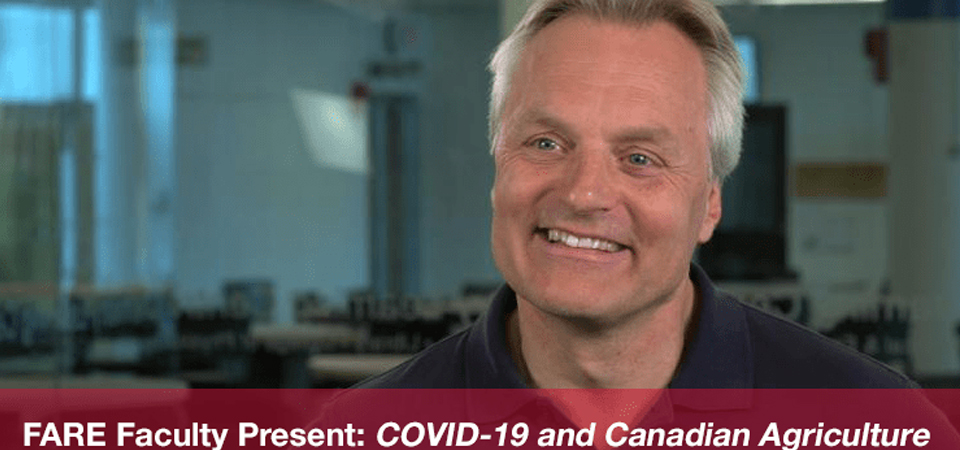The Department of Food Agricultural and Resource Economics (FARE) held its first faculty-led online seminar this past Thursday (October 29) titled FARE Faculty Present: COVID-19 and Canadian Agriculture, featuring Food from Thought researcher, Professor Alfons Weersink. In the hour-long seminar, Prof. Weersink discussed the effects that COVID-19 has had on food supply chains, looking at both the immediate and long-term impacts.
During the seminar, Prof. Weersink provided an overview of the critical events that shocked the supply chain sector, including the hospitality sector’s shutdown and the outbreak of COVID-19 cases on farms and within food processing plants. These events shook the supply chain, which was further aggravated by the changes in consumer behaviour. Consumers’ increased demand for products and hoarding of items forced retailers to adapt quickly by altering standard protocols and placing purchasing limits on certain goods. While these immediate disruptions stunned the supply chain process, the agri-food and supply chain industries have rebounded to near-normal conditions.
But despite this recovery, Prof. Weersink warned students of the longer-term implications that COVID-19 would have on the agri-food sector. These include the ability of businesses to recruit and retain a steady supply of workers, the substitution of workers for robots and AI machines, greater industry concentration, protectionism and nationalism in agricultural policy, and worsening food security issues for the most vulnerable populations. He said the agri-food and supply chain industries might have to redefine their processes and management plans to ensure resiliency for possible future disruptions, which may require improved collaboration amongst key players and increasing consumer costs.
The next FARE Faculty Present seminar will be hosted on November 12 and will feature Mike von Massow discussing health food labels and their effectiveness.


